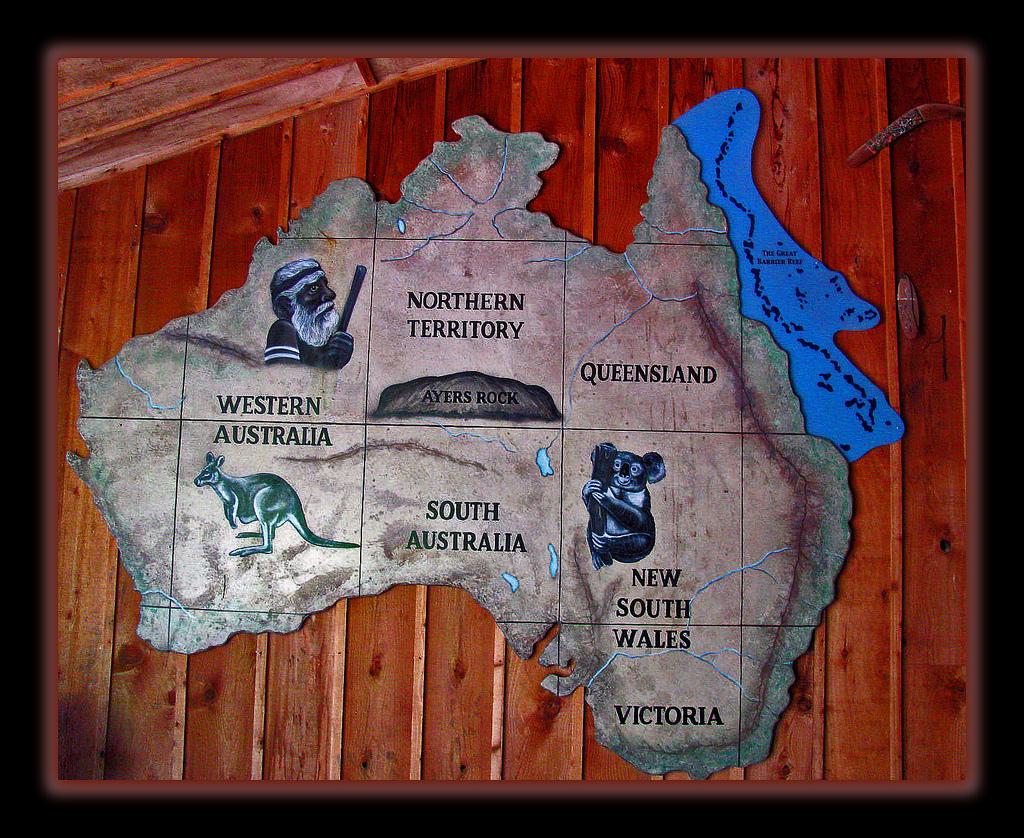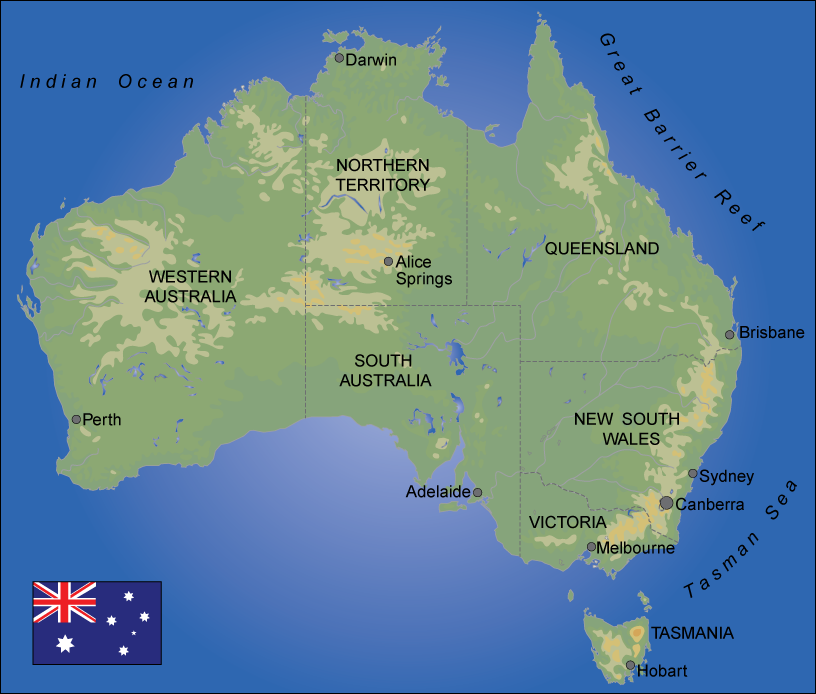An Introduction to Australia

Watch this video introducing Australia. You will find comprehension questions at the bottom of the page.
Australia - Introduction
During the 40,000 years before European settlement commenced in the late 18th century, the Australian mainland and Tasmania were inhabited by around 250 individual nations of indigenous Australians. After sporadic visits by fishermen from the north, and European discovery by Dutch explorers in 1606, the eastern half of Australia was claimed by the British in 1770 and initially settled through penal transportation to the colony of New South Wales. The population grew steadily in the following years; the continent was explored, and during the 19th century another five largely self-governing Crown Colonies were established.

On 1 January 1901, the six colonies became a federation, and the Commonwealth of Australia was formed. Since Federation, Australia has maintained a democratic political system and remains a Commonwealth country. The population is just over 21.7 million, with approximately 60% concentrated in and around the cities of Sydney, Melbourne, Brisbane, Perth and Adelaide. The nation's capital city is Canberra, located in the Australian Capital Territory (ACT).
Technologically advanced and industrialised, Australia is a prosperous multicultural country and has good results in many international comparisons of national performance such as health care, life expectancy, quality of life, human development, public education, economic freedom, and the protection of civil liberties and political rights.
Writing Task:
Use the Internet and other sources to find information on what you think should be added to this Wikipedia presentation of Australia. Is there anything in this text that you think could be left out? Copy this text into your text editor and edit it.
Further listening:
Listen to this interview with an Australian tour guide.
Down Under (Duration: 2:46 )
Relatert innhald
A simplified version of the resource "An Introduction to Australia".
Watch a short video about Australia and then answer the questions below.